As children, we’re often told little white lies or half-truths in order to be coerced or persuaded into doing something we resist.
I didn’t think this was fair game until I became a parent myself, and find myself making promises to my toddler that, at her age, she easily forgets. (I’m sure this will come back to bite me in the butt in a couple of years.)
So it makes me smile when I remember the oft-repeated “motivations” (read: manipulations) by my parents to encourage me to eat more vegetables: carrots will improve my vision or—my personal favorite as a kid—spinach will make me stronger (like Popeye!).
While I eventually figured out that spinach won’t give me superhuman strength, I’d always accepted—even as an adult—that carrots were good for the eyes and we needed to eat a lot of it.
I think my ophthalmologist even told me so at one point.
So you can imagine my surprise when I learned in later years that the carrot’s claim to fame is nothing more than an urban myth, born from propaganda spread during World War II.
That’s right, the government tricked people into believing carrots could help them see better.
But why?
Do carrots improve eyesight? The true story behind the myth.
During WWII, the British Royal Air Force (RAF) developed a type of radar technology that aided pilots in gunning down German enemy planes at night.
The onboard Airborne Interception (AI) radar, first used by the RAF in 1939, had the ability to detect enemy bombers before they reached the English Channel.
Ace fighter pilot John “Cat’s Eyes” Cunningham was the first RAF pilot to shoot down an enemy plane in 1940 using AI. His impressive record boasted 20 kills—19 of which were at night.
In order to keep the newly adopted technology under cover, the now-defunct Ministry of Food attributed the British pilot’s success to carrots.
They told newspapers that the pilot’s razor-sharp night vision was a result of consuming a steady diet of carrots, and claimed that civilians could also have eyesight as good as Cunningham’s (especially during mandatory citywide blackouts) if only they ate more carrots and stopped complaining about wartime rations.
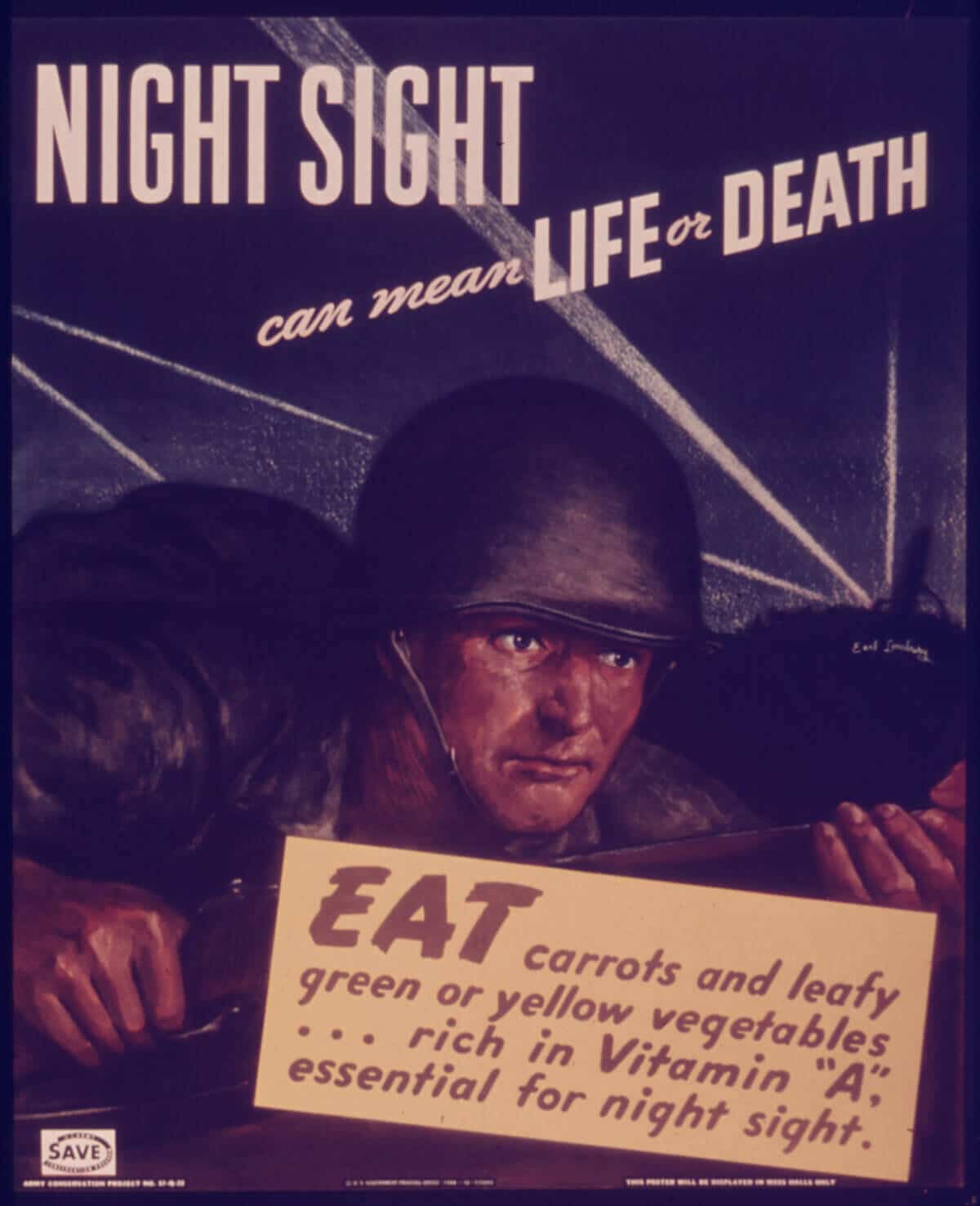
On the surface, this seemed plausible. The humble root vegetable was known as a good source of vitamin A (in the form of beta carotene), a vital nutrient for general health of the eyes as well as the skin, hair, and immune system.
But that is where the rumor runs into a gray area.
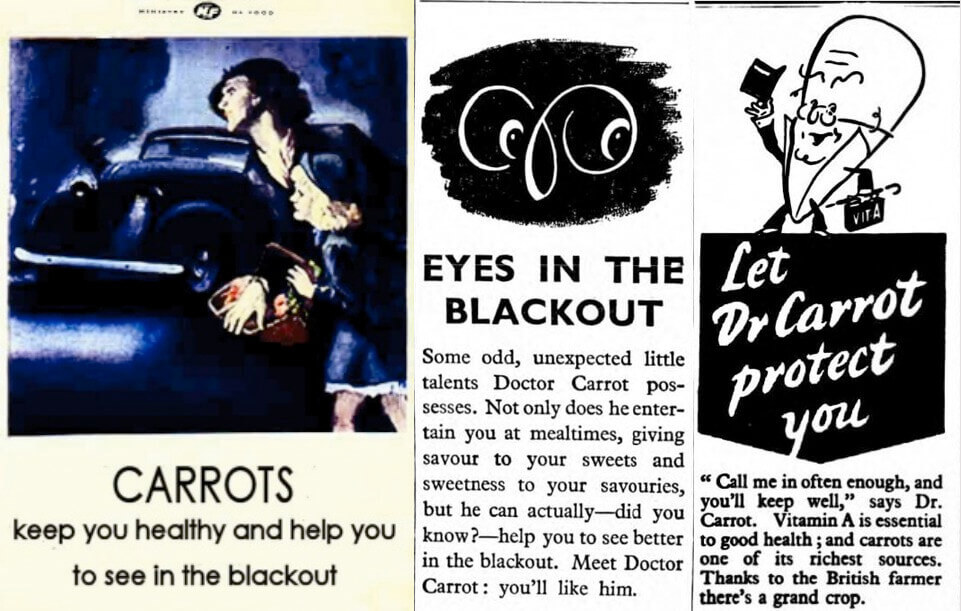
The role of vitamin A in eye health
Under certain conditions, vitamin A can help improve night vision.
Vitamin A helps the eye convert light into a signal that can be transmitted to the brain, allowing a person to see in low light.
An extreme deficiency in vitamin A (usually only found in undernourished populations) can lead to the cornea disappearing, causing vision impairment or even blindness in severe cases.
But, binging on carrots won’t improve eyesight if you already have enough beta carotene in your body.
After a certain level, it will no longer convert to vitamin A, since the body naturally regulates against excess amounts to prevent a toxic build-up of the substance.
What constitutes “enough” or “excess” is also uncertain in the scientific world.
Most studies focus on the benefits of beta carotene or vitamin A supplements, rather than actual carrots. And you can’t treat or reverse eye problems caused by aging or genetics simply by eating more carrots.
Furthermore, carrots get all the hype, but vitamin A is also found in other vegetables like sweet potatoes, winter squash, mustard greens, and spinach, as well as in dairy, eggs, oily fish, and liver.
How carrots inspired the victory garden movement
Historical sources are mixed on whether or not the British propaganda campaign succeeded in “tricking” the Germans into upping their carrot consumption.
What’s clear, however, is that the British public bought into it.
They believed that carrots could help them see at night during blackouts. They ate so much of it that they actually helped ease the wartime oversupply of carrots.
Related: Are Carrot Tops Poisonous? Here’s What Science Says
The carrot propaganda was so popular, in fact, that when a German blockade of food supply ships made imported staples such as sugar, bacon, and butter scarce, the British Ministry of Food called on its citizens to change the way they eat.
They launched the “Dig For Victory” campaign (a version of which was promoted by the United States government as well) to push for self-sufficiency in the garden and encourage people to try new techniques, like substituting carrots as a sweetener in recipes that typically used sugar.
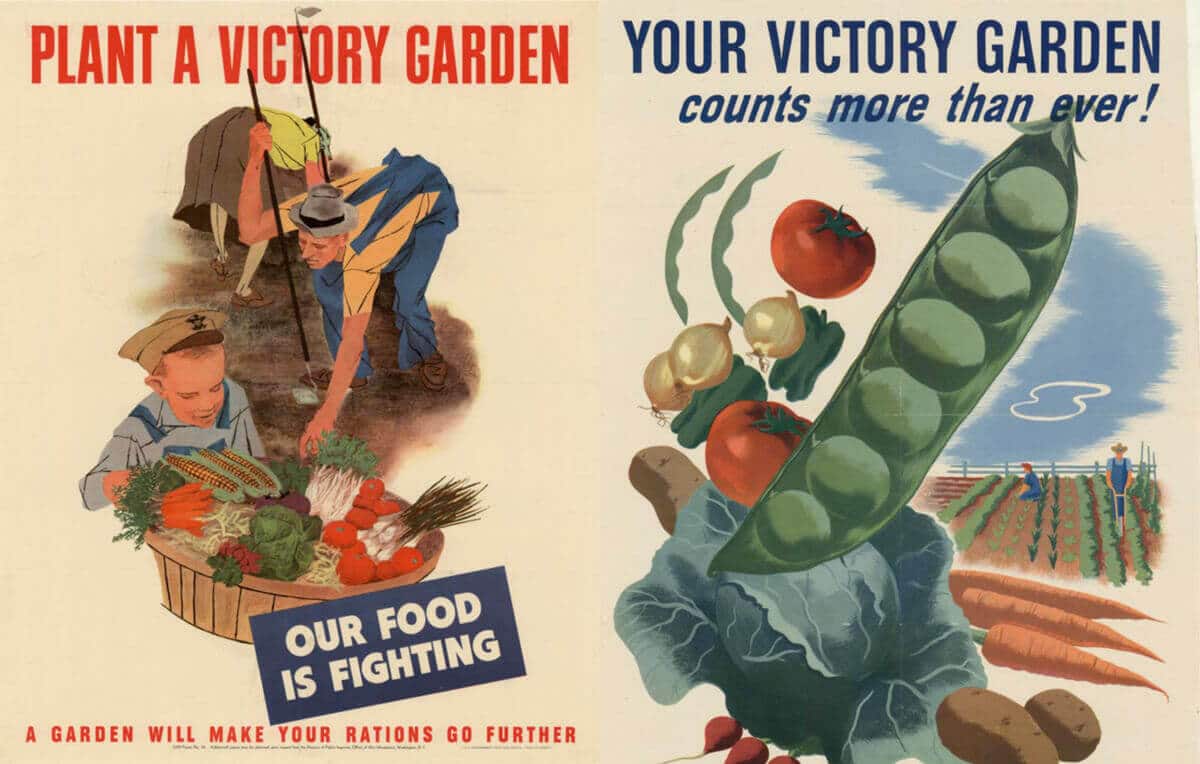
From carrot fudge to carrotade, the Ministry of Food offered an array of crazy ideas for using up the vegetable but above all, they emphasized avoiding waste.
Related: 11 Vegetables You Grow That You Didn’t Know You Could Eat
By 1942, there were so many carrots produced that the UK had 100,000 tons surplus of the vegetable!
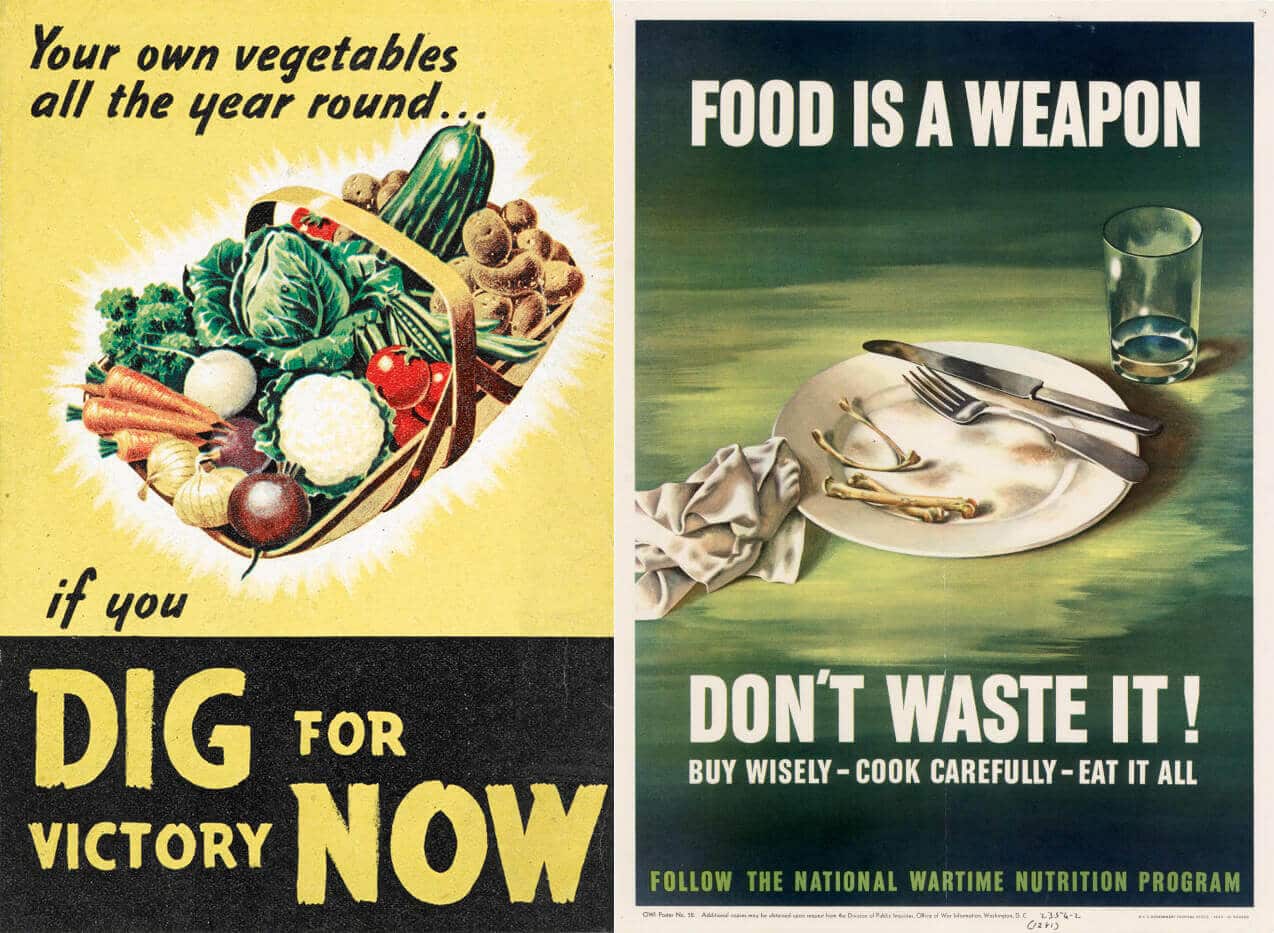
In the end, carrots did not contribute to improved vision in the way many believed.
But it helped win the war on a different front: by inspiring people to grow their own food, try new recipes, and waste as little as possible.
Learn how to waste less food in the kitchen
You don’t have to grow all your own food to be more sustainable in the kitchen. You just have to learn how to use more of what you do grow or buy, and it goes beyond composting.
My book, The No-Waste Vegetable Cookbook, teaches you how to use up all the (often surprising) parts of the vegetables you normally don’t think to eat and cook with.
And yes, that includes carrots and carrot tops.

View the Web Story on whether carrots can improve vision.
This post updated from an article that originally appeared on February 5, 2018.











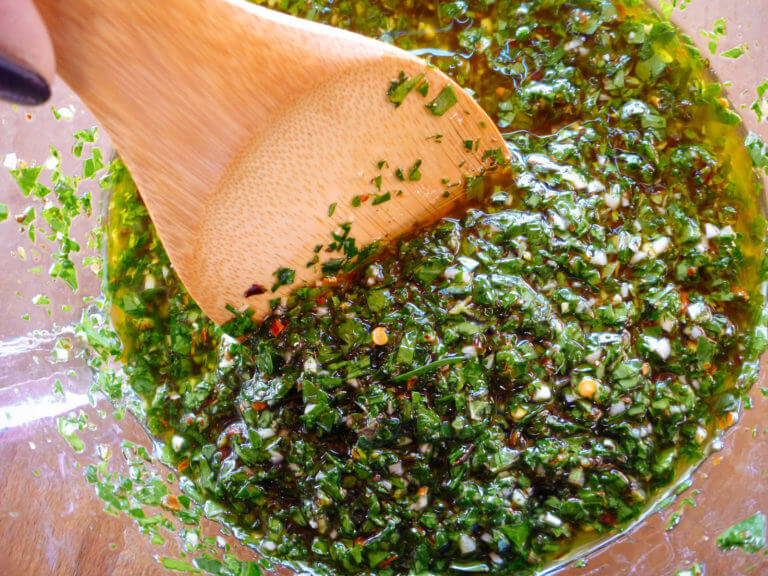
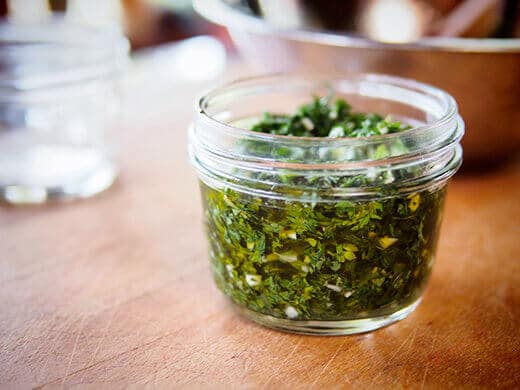
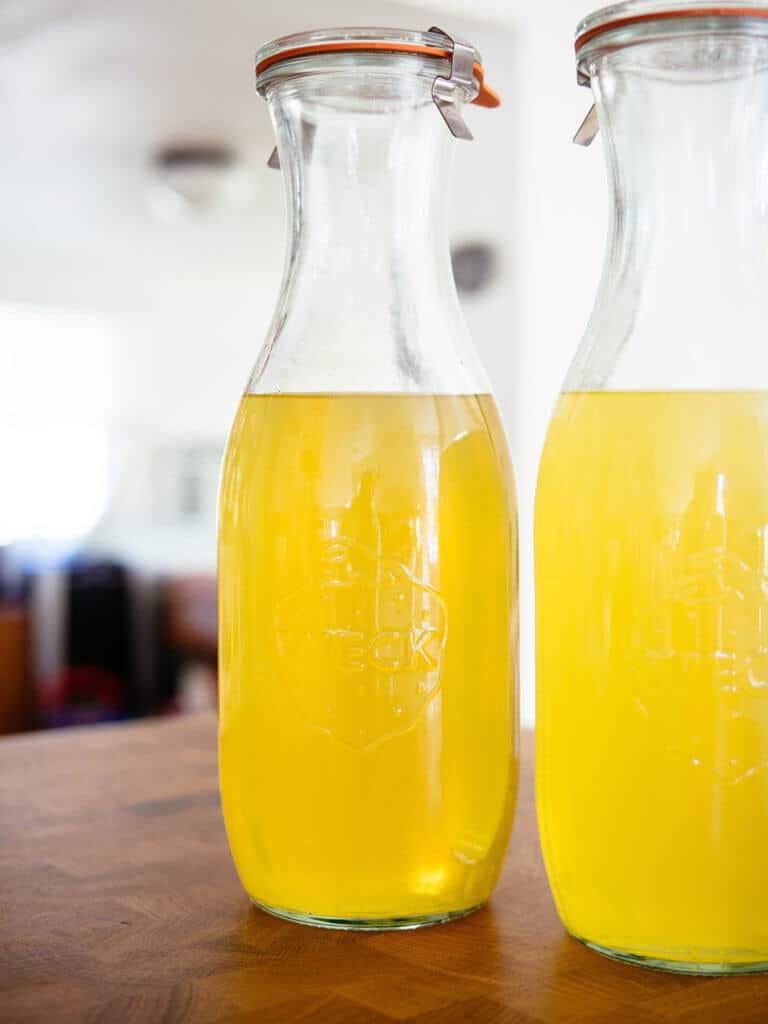


This is interesting 🙂 I still love carrots though.
When I was growing up my grandpa always used to tell me to eat my carrots because they were good for my eyes. I always believed him and used to devour them so I’d never lose my vision. Lol.
So interesting. Love reading the history and science behind it. And love all the old school posters too!